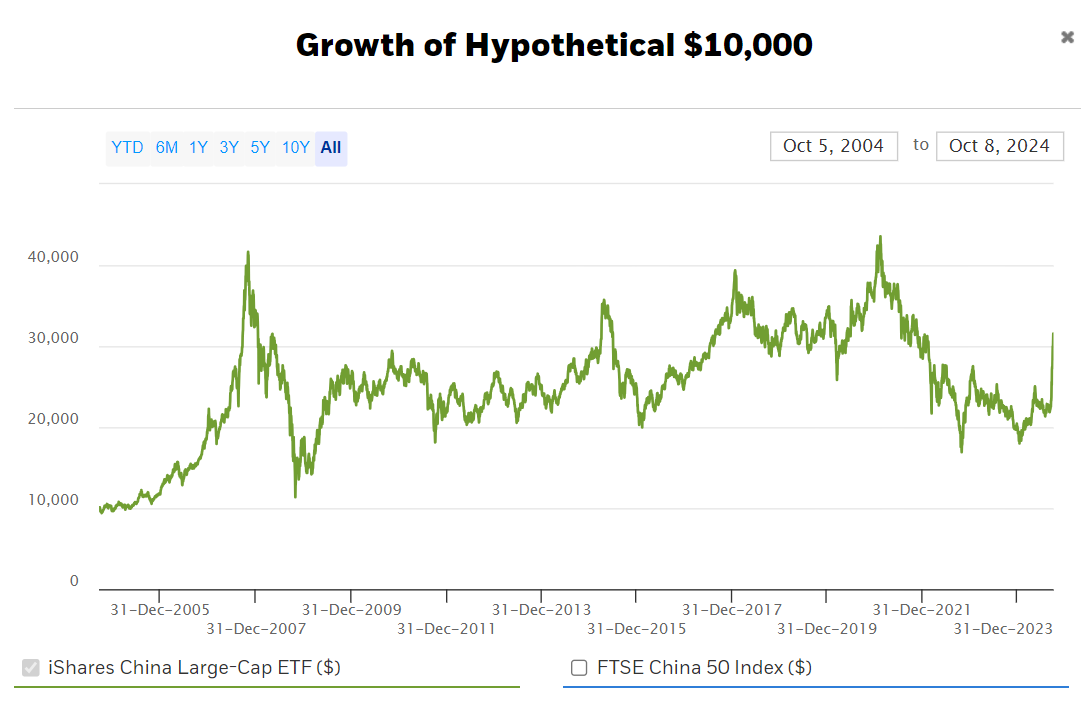Time To Smell The Coffee

Source: DepositPhotos
If the Americans wake up one day and realize that their economy is No 2 and China’s economy is No 1, that is not going to change the lives of Americans. They’re going to wake up in the morning and have their cup of coffee and everything will be the same... . So why have this obsession that the goal should be to stop China from becoming No 1?
—Former diplomat Kishore Mahbubani
The Forever War seems to be taking shape... a battle between East and West... a fight for ‘full spectrum dominance,’ led by the USA, with shifting and largely unattainable, unrealistic, or unworthy war aims. It is advertised as a fight between good and evil; sometime in the future, historians will tell us which was which.
The current plan seems to be to wage war on three fronts.
First, keep Russia under pressure in the Ukraine... with both sanctions and active fighting... in order to ‘weaken’ the Putin regime.
Second, join with the Israelis to attack Islamic countries and ‘terror’ groups in the Middle East.
Third, prevent China from gaining technological and/or economic superiority.
This last objective may be the hardest to achieve. No one doubts that the US has firepower up the kazoo. But developing new technologies and creating real economic growth are different matters altogether. Typically, politicians and generals are not very good at it.
Besides, the Chinese have their scientists and tech innovators too. South China Morning Post:
Chip war: China claims breakthrough in silicon photonics that could clear technical hurdle
A state-funded semiconductor lab in China said it has achieved a “milestone” in the development of silicon photonics, which could help the country overcome current technical barriers in chip design and achieve self-sufficiency amid US sanctions.
Silicon photonics chips can be produced domestically using “relatively mature raw materials and equipment” without relying on high-end extreme ultraviolet (EUV) lithography machines, unlike electrical chips, Sui Jun, president of Beijing-based semiconductor start-up Sintone, was quoted as saying by local media in 2022.
EUV machines, required for making advanced chips, are considered the Achilles’ heel of the Chinese semiconductor industry, as domestic firms struggle to mass-produce such tools. Netherlands-based ASML, which holds a virtual monopoly on EUV machines, stopped exporting the equipment to China in 2019.
To us, it seems almost impossible that government funded research... and an economy run by communists …could pull ahead of a free economy in a robust, democratic country.
But both countries have their scams and charades. The US economy is not exactly ‘free.’ And China is not exactly ‘communist.’ Central financial planning is a fact of life in both countries. It’s hard to say how much of an impact it has on the real economy. Nor does America’s ‘democracy’ necessarily throw up better leaders than the Chinese system. And when you include regulations as well as direct spending, the percentage of actual output that is controlled or heavily influenced by the feds may not be so different.
Under such conditions, could China actually become the world’s leading economy? Maybe.
SCMP:
Made in China 2035: will it topple US hi-tech, military manufacturing in 10 years?
“Overall, the decline of the US manufacturing industry and its weakened competitiveness in the global market have become an irreversible trend,” said Lu Yongxiang, former vice-chairman of the National People’s Congress, in a commentary published in the Chinese Journal of Mechanical Engineering on September 9.
While the US has maintained its lead in hi-tech and advanced military equipment production, its advantages are rapidly diminishing, according to Lu.
“It is estimated that by 2035, ‘Made in China’ will surpass the United States and become the global leader,” Lu said in the article.
“The big question the US should ask is this,” says Mr. Mahbubani, “what happens if all its measures to stop China do not work…?”
Then, it will be time to smell the coffee.
Regards,
Bill Bonner
Market Note:
Chinese stocks have been dead money for almost two decades and arguably even further back. Here, I’m using a chart of the iShares China large-cap ETF [FXI], which shows the total return a US investor would have achieved, including reinvested dividends, in Chinese stocks going back to October 2004 (183%).
Terrible, especially relative to the total returns of the S&P 500 with dividends reinvested (623%) or gold (509%) over the same period. FXI is the largest China-focused ETF available to US investors, with $9 billion in assets.
On September 24, China’s central bank announced its biggest stimulus program since the pandemic. In the twelve trading sessions since the central bank announced its stimulus, FXI rose 35% and then crashed 14%. (The volatility is probably being amplified because Chinese markets were closed last week for Golden Week.)
Here at Bonner Private Research, we’re focused on avoiding the Big Loss and we have no position in Chinese stocks. Even though they're cheap, Chinese stocks seem way too risky for anything other than speculating on.
Better to just buy gold, silver, platinum and industrial commodities, which should benefit from the Big Picture, out-of-control US government spending and the new rebel trading system, which China appears to be leading…

More By This Author:



